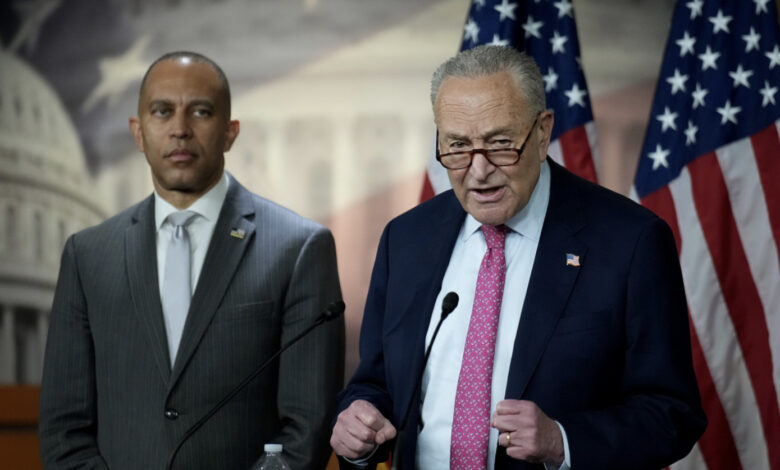Senate Dems On Verge Of Ending Shutdown After Polling Turns Against Them

After nearly three weeks of gridlock in Washington, there are indications that some moderate Senate Democrats may be prepared to cross party lines to help reopen the federal government.
Mounting public frustration and growing economic pressures have added urgency to end the shutdown, which began on October 1.
The impasse began when Senate Democrats blocked a clean continuing resolution that would have maintained government funding without additional spending provisions. Instead, Democratic leaders advanced a $1.5 trillion package that included a range of progressive initiatives, leading to a stalemate that has left hundreds of thousands of federal employees and contractors in limbo.
However, the political landscape may be changing. Following last weekend’s “No Kings” rallies — significant progressive protests that took place in major U.S. cities — White House officials believe the momentum that previously energized the left is beginning to wane.
“There’s sort of cracks in the Schumer armor,” said Kevin Hassett, director of the National Economic Council. “I think the Schumer Shutdown is likely to end sometime this week.”
Hassett’s comments on CNBC came as reports surfaced that several moderate senators — including Jeanne Shaheen (D-N.H.), Mark Kelly (D-Ariz.), and Angus King (I-Maine) — are growing uneasy with the direction of the shutdown.
As the stalemate continues, polls suggest that more voters, including independents and moderate Democrats, are increasingly assigning blame to Democratic leadership.
The shutdown’s impact is being felt across the country. About 750,000 federal employees have been furloughed or are working without pay, while military families report increasing financial strain.
Transportation systems have also been affected, with growing TSA lines and widespread air travel disruptions — including more than 53,000 flight delays attributed to staffing shortages.
Abigail Jackson, a White House spokesperson, reaffirmed that “Americans struggling is not good,” which was a signal that the administration’s intent to stay firm on a clean funding bill while framing Democrats as the party responsible for unnecessary hardship.
Business leaders are increasingly warning of the shutdown’s widening economic impact. The tourism and transportation industries are reporting mounting losses, and consumer confidence has continued to decline.
The combination of these economic pressures and the political perception of a deadlocked Congress has intensified concerns among Senate Democrats, who worry the prolonged standoff could inflict lasting damage ahead of future elections.
Reports from Capitol Hill indicate a quiet but notable shift within the Democratic caucus. Shaheen, among the first to voice concerns about her party’s strategy, has reportedly told colleagues that voters in her state are increasingly frustrated with “Washington games.”
Similar sentiments are circulating among moderate Democrats facing reelection in 2026, particularly those representing states with competitive politics.
Hassett pointed out that many of our friends in the Senate have mentioned that it looked bad for Democrats to reopen the government before the “No Kings” rally.
Now that the weekend demonstrations have concluded, he argued that moderates might finally have the political cover they need to take action.
“There’s a shot that this week things will come together, and very quickly the moderate Democrats will move forward and get us an open government,” Hassett said.
Behind the scenes, a small group of senators from both parties has discussed a possible compromise to reopen the government temporarily.
The proposal would use a clean continuing resolution to restore operations while allowing future negotiations on healthcare subsidies and other Democratic priorities.
Senate Majority Leader John Thune (R-S.D.) has so far rejected Democratic demands, stating that Republicans will not negotiate “under hostage conditions.” His firm stance has placed increased pressure on Democrats to determine the next steps.
If even a few moderate Democrats choose to side with Republicans, it could deliver President Trump a significant political victory and undermine the image of party unity that Senate Minority Leader Chuck Schumer (D-N.Y.) has sought to project.